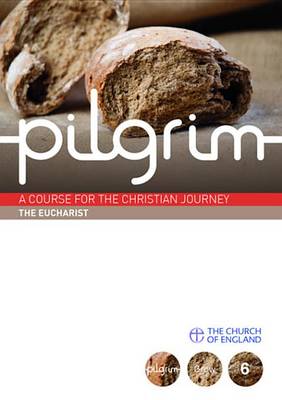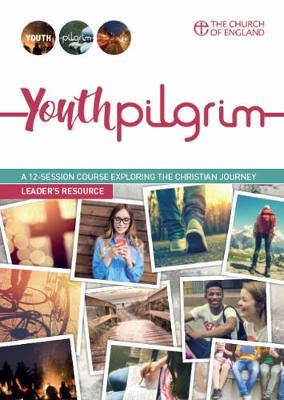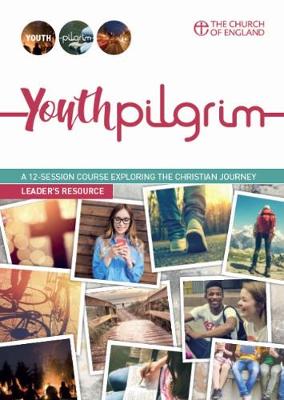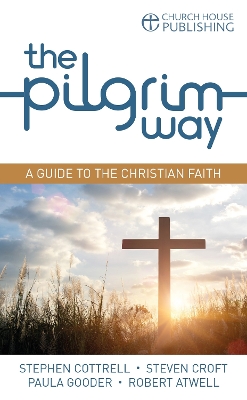Pilgrim Course
4 total works
Pilgrim is a major new teaching and discipleship resource from the Church of England. It will help enquirers and new Christians explore what it means to travel through life with Jesus Christ.
A Christian course for the twenty-first century, Pilgrim offers an approach of participation, not persuasion. Enquirers are encouraged to practice the ancient disciplines of biblical reflection and prayer, exploring key texts that have helped people since the earliest days of the Christian faith.
Believing that the Christian faith is primarily about relationship, Pilgrim aims to lay a foundation for a lifetime of learning more about God's love revealed in Jesus Christ and what it means to be his disciple. Assuming little or no knowledge of the Christian faith, Pilgrim can be used at any point on the journey of discipleship and by every tradition in the Church of England.
Pilgrim is made up of two parts: Follow and Grow. Each consists of four short courses and a leaders' guide. Follow introduces the Christian faith for complete beginners, while Grow aims to develop a deeper level of discipleship in those who have turned to Christ.
Each short course contains six-sessions, supported by
online audio-visual resources. All sessions combine a simple framework prayer,
reflection on the Bible in the lectio divina style, an article by a modern
writer, and time for questions and reflection.
The Leaders' Guide explains the aims and approach of Pilgrim and offers advice and support for running the sessions.
Youth Pilgrim Leader's Guide
by Paula Gooder, Martyn Snow, Alice Smith, and Ali Campbell
Assuming little or no prior knowledge of the Christian faith, so can be used with curious enquirers. It is flexible and adaptable, allowing it to be used with young people at various stages of faith as well as in baptism and confirmation preparation.
As with the original Pilgrim course for adults, Youth Pilgrim takes an approach of participation rather than persuasion, encouraging groups to pray and read the Bible together from the outset.
There are four groups of three sessions, each of them focused around a key question:
What is prayer? (The Lord's Prayer)
What is a Christian? (The Beatitudes)
How should Christians live? (The Commandments)
Who is Jesus? (The Apostles' Creed/Baptism Promises)
In exploring these questions, young people are introduced to the key scripture texts and the Creed. As with the main Pilgrim course, worship is integral and groups are encouraged to pray and read the Bible together from the outset.
Each session provides an activity-based and interactive approach to its subject and is supported by extensive additional digital resources.
This Leader's Guide is supported by an individual journal for group members, plus video resources on DVD.
Youth Pilgrim Participant's Journal
by Paula Gooder, Martyn Snow, Alice Smith, and Ali Campbell
Assuming little or no knowledge of the Christian faith, it is flexible and adaptable, allowing it to be used with young people at various stages of faith as well as in baptism and confirmation preparation.
As with the original Pilgrim course for adults, Youth Pilgrim takes an approach of participation rather than persuasion, encouraging groups to pray and read the Bible together from the outset.
There are four groups of three sessions, each of them focused around a key question:
What is prayer? (The Lord's Prayer)
What is a Christian? (The Beatitudes)
How should Christians live? (The Commandments)
Who is Jesus? (The Apostles' Creed/Baptism Promises)
Each session provides an activity-based and interactive approach to its subject and is supported by extensive additional digital resources.
This Participant's Journal is designed for use by individual group members as they progress through the course.
The Pilgrim Way
by Stephen Cottrell, Steven Croft, Paula Gooder, and Robert Atwell
Written by the authors of the popular Pilgrim course, it follows the pattern of one of the most ancient teaching traditions of the Church: catechism. Originally a form of baptism preparation in the early Church, it explores Christian belief through a series of questions and answers – the way that Christians across the centuries have learned and taken to heart the core truths of Christianity.
The Pilgrim Catechism complements the Pilgrim course in discipleship and acts as a summary for key questions that it explores, such as:
• What is the faith of the church?
• How do you become a Christian?
• What is worship?
• What is baptism?
• How did Jesus teach his disciples to pray?
• What is a sacrament?
• How can we trust the Bible?
• What is the hope in which we live?
Scripture quotes and texts such as the Creed provide many of the responses and throughout, disciples are challenged to work out their beliefs in their daily lives.



